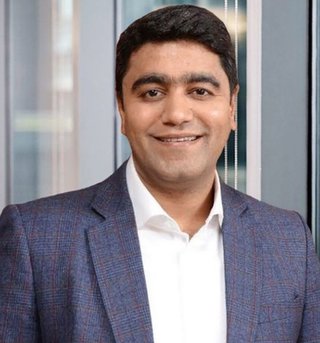Three Trends That Will Define Grocery in 2023
By Manish Choudhary
President and CEO, SymphonyAI Retail CPG
Going into 2023, grocers and CPGs may feel like they’re experiencing déjà vu from 2022: there are plenty of doubts and very little clarity.
However, there is some good news. The most recent inflation figures in the U.S. show signs of improvement, even if still elevated year-over-year. Another bit of good news is that the last few years have forced retailers to become savvier with their data. Against this picture of hedged optimism, grocers and their CPG partners have the opportunity in the new year to make the most out of the value they now understand data provides. By doing so, retailers and CPGs can stay ahead of competitors while delighting shoppers.
Going forward, success will require going far beyond shopper data alone. In 2023, retailers will finally be able to use this data to feed AI models that will continue to push the limits of predictive capabilities.

The world of data beyond shopper data
Omnichannel proliferation and rising competition have raised the stakes for grocers and CPGs. While succeeding in retail has always required a solid foundation of data, going forward, success will require going far beyond shopper data alone. Data is becoming more contextual, time-bound, location-specific, and closer to real-time. As data continues to evolve, so must the analysis and usage of the data.
The changing data ecosystem presents a unique opportunity for grocers and CPGs to stand out. The most innovative players are no longer just hiring more data analysts, but increasingly relying more on AI and machine learning models to generate the insights that ultimately create competitive advantage. Retail is complex, and by managing and optimizing this complexity by leveraging predictive and actionable insights, retailers and CPGs can hyper-personalize, achieve better assortment and replenishment – and ultimately increase revenue, profit and shopper loyalty.
Store intelligence replaces shelf intelligence
Grocers and CPGs once thought shelf intelligence, and how to make decisions about it in real-time, was the holy grail of assortment and space optimization. And while important, it is no longer sufficient; instead, it is store intelligence that paves the way for more optimal assortment and space optimization.
Store intelligence allows retailers and CPGs to incorporate data from various areas of the store, ranging from planogram compliance to labor optimization, to make better at-shelf decisions. And fortunately, with the advent of AI, technology is now advanced enough to give grocers a single version of the truth from a centralized hub.
Supply chain resilience
Supply chain upheaval, which has created a persistent scramble for grocers over the last three years, is now a full-fledged challenge deserving of its own entry. Geopolitics, shipping, labor and crop uncertainties have always led to supply chain challenges. However, in 2023, by using predictive data models, grocers and CPGs alike will be able to leverage better insights to strengthen their supply chains and anticipate and mitigate, rather than simply respond to, supply chain gaps.
AI technology will help retailers and brands alike improve resiliency using real-time information instead of one-time snapshots of data that leave the legwork in the hands of merchants and planners.
If 2022 was the year that retailers finally recognized that data generated from various sources could be put to good use to help them make strategic decisions, in 2023, grocers and CPGs will finally be able to use this data to feed AI models that will continue to push the limits of predictive capabilities. In turn, these capabilities will enable grocers and CPGs to succeed in the rapidly evolving ecosystem.




Manish Choudhary serves as president & CEO at SymphonyAI Retail CPG.
Choudhary comes to SymphonyAI Retail CPG from Diebold Nixdorf, where he served as executive vice president of global software. Previously, Choudhary was general manager and senior vice president of sending technologies for Pitney Bowes. He has experience building successful startup accelerators and angel investment in software and technology companies, and is the author of “Undisrupt,” a book on AI and digital transformation.